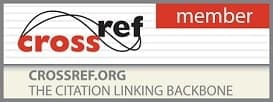Printed Journal | Refereed Journal | Peer Reviewed Journal
Peer Reviewed Journal
International Journal of Literacy and Education
2025, Vol. 5, Issue 2, Part B
Tribal education in odisha: An exploratory study of ho children's access to quality education in elementary stage in present context under nep 2020
Author(s): Gomeya Among
Abstract: In this light, this study focuses on understanding whether the Ho tribal children in Odisha have real access to and translate their entitlements into the reality of quality elementary education as per the aspirations of NEP 2020. The paper draws on a systematic secondary data review to examine these three intersecting areas: mother-tongue based instruction and Multilingual Education (MLE), culturally-responsive pedagogy, and the dynamics in implementation of policy at community level. Results have revealed that although NEP 2020 states mother-tongue educating and a decentralised-inclusive school system, in Ho-dominated districts there is an uneven MLE implementation, shortages of Ho-speaking teachers; insufficient contextualised instructional materials and infrastructural limitations inhibit retention and learning outcomes. The analysis focuses on state level responses to create resources in more MLE classrooms and encourage enrollment of teachers but cautions that these are likely to remain sporadic unless the state offers community-based curricula, properly trains teachers under the tribal pedagogy and implements robust monitoring. Key policy recommendations include scale-up of Ho-language materials and teacher recruitment; institutionalisation of Warang Chiti where suitable, setting up tribal representation structures in School Management Committees well atop the political orders and investment in context-sensitive implementation plans to translate NEP 2020 objectives to culturally embedded practices.
DOI: 10.22271/27891607.2025.v5.i2b.325
Pages: 157-164 | Views: 285 | Downloads: 119
Download Full Article: Click Here

How to cite this article:
Gomeya Among. Tribal education in odisha: An exploratory study of ho children's access to quality education in elementary stage in present context under nep 2020. Int J Literacy Educ 2025;5(2):157-164. DOI: 10.22271/27891607.2025.v5.i2b.325
Related Journal Subscription
Important Links
Featured Journal Subscription








